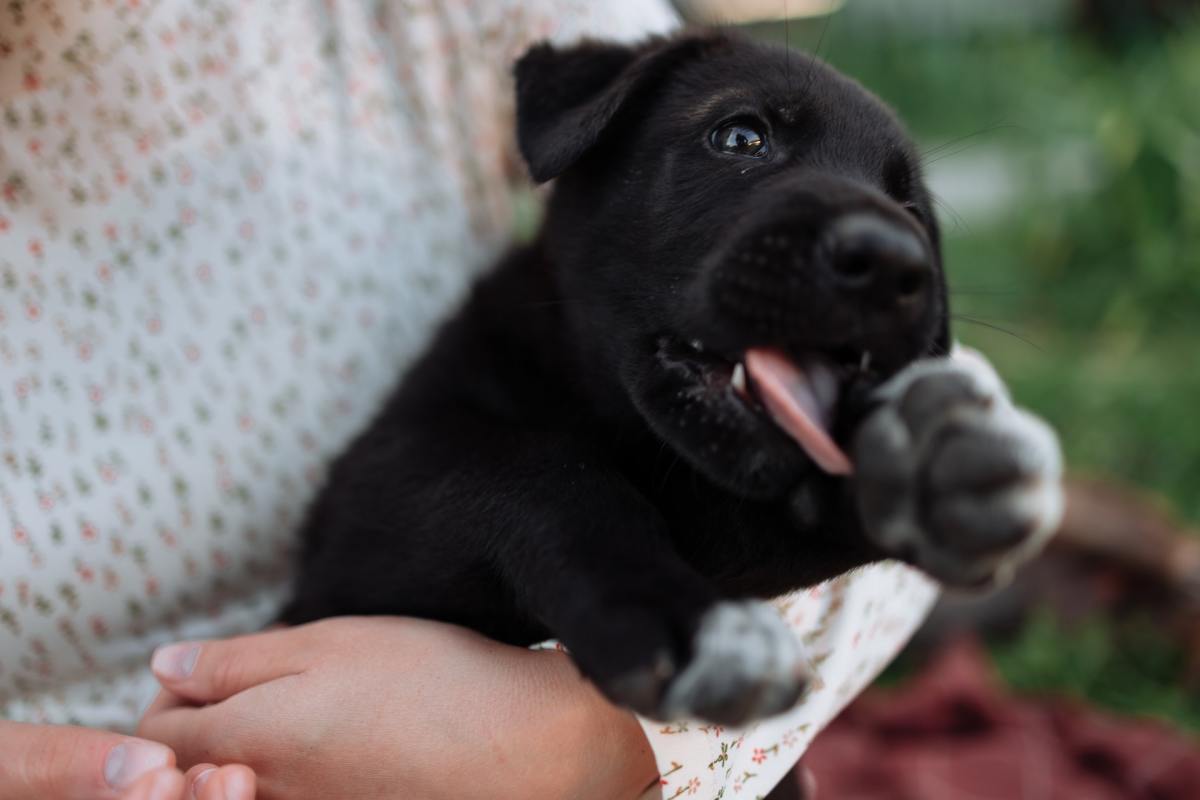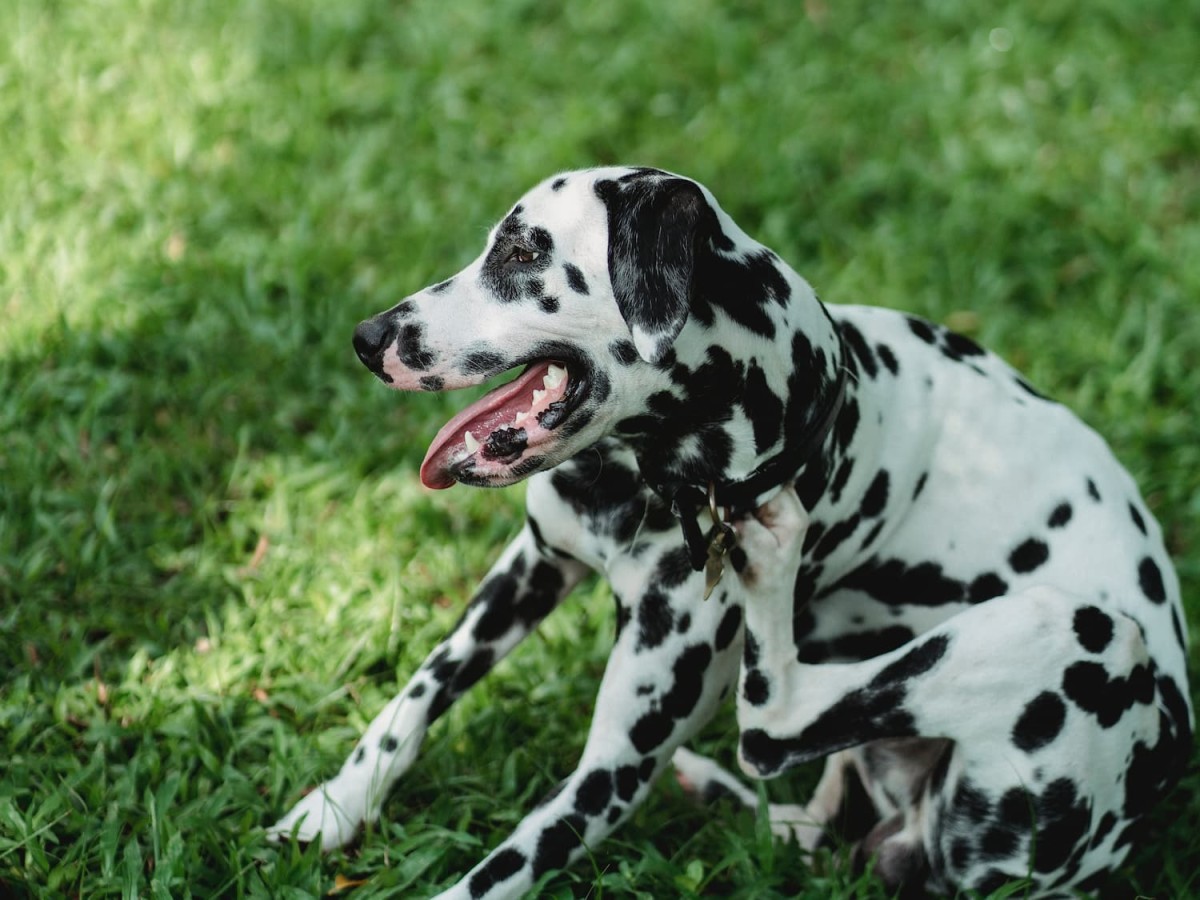Can Puppies Get Hiccups?
Let’s talk about puppy hiccups! They happen when young dogs get overly excited and tend to eat and drink quickly. Young dogs often experience stress from new surroundings or their owners leaving for extended periods. As a result, puppies are more likely to hiccup than adult dogs.
The good news is that you needn’t be too concerned about puppy hiccups. They don’t necessarily mean there’s a hidden health issue, and they often disappear on their own after a few minutes.
Although this condition is pretty typical (and adorable), you may wonder how to calm your puppy so that they can breathe more smoothly and stop the spasms. Let’s look at some tips and tricks to do that.
Tips to Stop Your Puppy’s Hiccups
- Pet your puppy gently for relaxation and bonding.
- Massage the tummy lightly to aid digestion.
- Use slow-feeder bowls and feed smaller, more frequent meals.
- Find distractions like low-intensity play or a puzzle toy.
- Use synthetic pheromones like Adaptil to calm their diaphragm.
- Play soothing music, like classical, reggae, or soft rock.
- Be calm and relaxed yourself.
The most straightforward way to stop puppy hiccups is to make them feel settled and comfortable. Stress and anxiety are huge triggers of this problem, so reducing a dog’s emotional arousal helps them calm down and breathe more smoothly.
How Gentle Petting Can Help
Petting your puppy can release oxytocin, a hormone that encourages bonding and relaxation for you both. Put your pup in a cozy spot and stroke its fur softly until it is calm. The hiccups will likely end if they become relaxed enough.
Benefits of Rubbing the Belly
Belly rubs are perfect for stopping hiccups, bonding with your puppy, and making them feel loved and content.
If your dog is comfortable with being on their back, gently massage their tummy to help them relax and breathe more slowly. A light massage can also stimulate the digestive system and reduce gas buildup. Use light pressure and avoid rubbing too vigorously.
Most dogs enjoy a tummy rub because it feels good, stimulates their hair follicles, and replicates the social grooming behavior they received from their mother.
Please note that some puppies may not want their bellies rubbed if they feel threatened or uncomfortable. In that case, try the next tip. It always helps to take note of what your dog responds well to and keep that in mind.

Benefits of Using Slow Feeder Bowls
Another common cause of puppy hiccups is swallowing too much air. Being excited, they often gulp down their meals and take in too much water too quickly. You want to avoid this situation because it can lead to other problems, like:
- overeating
- vomiting
- bloat, a painful and dangerous condition
To fix this problem, a unique type of pet bowl can make your puppy eat or drink more slowly. These are called slow feeder bowls, with raised sections or obstacles that make them work harder to get food or water.
Slow feeders can also make mealtime more fun and challenging, boosting the dog’s brainpower and preventing boredom.
One of the best products I’ve found is the Outward Hound Fun Feeder Slo Bowl, which comes in various sizes, shapes, and colors. It’s durable, and the price represents excellent value.
How Portion Control Can Help
Feeding your puppy smaller portions more frequently throughout the day instead of giving them one or two large meals is helpful. Managing dog food portions can help meals digest better and prevent overeating.
Please remember that giving your pup too many treats or human foods may upset their stomach or trigger sensitivities!

How to Distract Your Puppy
Playing with your puppy or giving them a toy can take their mind off the hiccups and make them stop. The trick here is to pick a plaything that won’t make them gulp more air.
Low-intensity puzzle toys are a great option because they stimulate a puppy’s brain, challenge their problem-solving skills, and reward them with treats or kibble at a slow pace. My favorite option is a cheap and cheerful Kong toy, which can also relieve teething discomfort in young dogs.
How Pheromones Can Help
Pheromones are chemicals that dogs release to communicate with each other. They can have a soothing effect on canines and enable them to better cope with new or stressful situations.
Synthetic products like Adaptil function in this way to mimic the scent of a mother dog’s milk, calming your puppy and making them feel safe and protected.
Spraying Adaptil near a hiccuping puppy is effective because they quickly pick up on the comforting pheromones, settle their diaphragm, and halt the vicious hiccup cycle. This remedy is a safe and non-invasive way to comfort your pet during stress or discomfort.
How Relaxing Music Can Help
Relaxing music can help calm dogs of all ages, lowering their heart rate and blood pressure. Research shows the best sound therapy includes classical, reggae, baroque, and nature sounds. The reason is that these genres all positively affect their behavior and mood.
You can find playlists of soothing music for dogs on YouTube or Spotify. Play the tunes softly in the background, gently petting or massaging them.
Did you know…?
Dogs can hiccup while they sleep—it’s true! Some puppies hiccup during their REM (rapid eye movement) stage of sleep when they dream and twitch. This reaction is normal and harmless and may even mean your dog is having a nice dream.
When to See a Vet
Puppy hiccups are usually nothing to fret about, but they might annoy you just as much as your pet. However, you still want to monitor your pet’s health and behavior closely. That way, you can report anything unusual to your vet.
Please call a veterinary clinic right away if:
- Hiccuping lasts for over an hour
- They have frequent sessions (more than once daily)
- They are coughing, drooling, vomiting, have diarrhea, or are very tired
- They seem to be in pain or distress
- They have a hard time breathing or swallowing
- They are running a fever or have a swollen abdomen
The vet will run tests to determine what’s causing the problem. Your pup might need medicine, surgery, or some other form of therapy based on what they find. That may sound daunting, but you’ll know your pet is in excellent hands to get them the care they need.
Final Thoughts
This article has helped you understand puppy hiccups and some practical and loving ways to deal with them. Don’t worry; it’s usually nothing serious. Try some tips and tricks to see if they work for you both.
And remember, hiccups are not only annoying but also cute. They are part of your pup’s charm and personality. So enjoy your time with your new friend, and don’t let the hiccups bother you too much.
Above all, remain calm yourself. Doing so will show your little friend that you are not worried or stressed and that hiccups are not a big deal.
Sources and Further Reading
- Why Does My Puppy Have Hiccups? | the Kennel Club
Puppy hiccups are normal; some puppies may not get them a lot, others get them all the time, always after they eat or during sleep. - Dog & Puppy Hiccups: How to Get Rid of Them | Fairfield, NJ Vets
In this blog, our Fairfield, NJ vets discuss hiccups in dogs and puppies and when you should be concerned.




